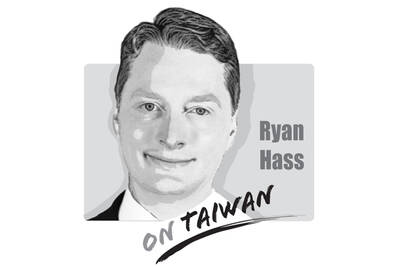Riding on the momentum of yet another devised “shopping festival” in China — known as “618 shopping day,” created by JD.com, and celebrated annually on June 18 — the Chinese e-commerce giant Pinduoduo has recently launched an aggressive marketing offensive in Taiwan. From widespread online advertising to influencer recruitment campaigns, the company is clearly signaling its intention to expand its footprint in the Taiwanese market.
However, beneath this marketing blitz lie deeper structural questions: What challenges is Pinduoduo actually facing, and what kind of impact might its expansion have on Taiwan’s industries and consumers?
First and foremost, this latest move by Pinduoduo is a direct response to increasing operational pressures, external and internal.
Externally, the company’s overseas platform, Temu, has been hit hard by escalating US-China trade restrictions. These include punitive tariffs on Chinese imports — reaching as high as 145 percent, and the revocation of the de minimis exemption for packages valued under US$800. These changes have substantially reduced Temu’s ability to contribute revenue and profits to its parent company.
Domestically, Pinduoduo’s long standing strategy of low-cost, high-volume sales is starting to falter. The knock-on effects of US tariffs have worsened employment conditions in China’s export manufacturing sector, while domestic consumer confidence continues to stagnate. As a result, the company’s growth in the domestic market has stalled: In the first quarter of this year, Pinduoduo’s revenue fell short of market expectations, and its net profit plummeted by 47 percent year-on-year. These pressures are now pushing the company to aggressively pursue new overseas markets in hopes of alleviating its financial strain.
Behind Pinduoduo’s expansion lies a broader systemic issue: China’s industrial overcapacity. The company represents a model that leverages ultra-low-cost goods and price-cutting strategies to undercut local manufacturing and e-commerce industries in other countries. This practice is not only economically harmful to local producers, but also culturally and environmentally detrimental.
Many of the products sold through platforms such as Pinduoduo are poorly made and designed for short-term use, fostering a disposable consumer culture driven by the logic of “just buy another one when it breaks.” This kind of consumption model runs counter to efforts to promote quality, durability and sustainability — values essential for building a responsible consumer society.
Given that Taiwan’s trade negotiations with the US, particularly regarding tariff structures, remain unresolved, this situation calls for urgent policy consideration. Whether the concern is user data security, Taiwan’s industrial resilience or the preservation of a sustainable consumer culture, Taiwan’s government must act swiftly and decisively.
Concrete measures should include revoking tax exemptions on low-value imports from China, as well as establishing legislative and regulatory frameworks to effectively monitor and manage platforms such as Pinduoduo and their affiliated apps. As the old adage goes: “Better late than never” — but only if action is taken before the damage becomes irreversible.
Roger Wu works in the service sector.
Translated by Lin Lee-kai

President William Lai (賴清德) has been handed a trifecta of setbacks in recent months. Taiwan’s trade negotiations with the United States proved inconclusive. Lai was not permitted to transit New York City as part of a broader trip. And the Democratic Progressive Party failed in its attempts to recall Kuomintang legislators. On top of this, there is concern in Taiwan that a meeting between Donald Trump and Xi Jinping (習近平) this fall could generate disadvantageous outcomes for Taiwan, such as revisions to America’s longstanding cross-Strait policies to more closely align with Beijing’s preferred framing of issues. These are challenging times for
Before the break of dawn, the streets are full of countless teens rushing to class with backpacks in hand — a scene that has long been part of Taiwan’s educational landscape. Recently, a citizen-initiated petition signed by more than 10,000 people calling for delaying junior-high and high-school class starting times to 10am and ending at 4pm has once again drawn society’s attention to students’ health and daily routines, triggering debate over topics from sleep and biological clocks to the pressures of the academic system. Supporters and opponents of the petition have their own perspectives, but what is truly worth reflecting on
The Mataian River (馬太鞍溪) barrier lake burst into Hualien County’s Guangfu Township (光復) on Tuesday, causing floodwaters to pour onto Dunhou Road, Fozu Street and other areas of the town, resulting in a major tragedy. Before the disaster struck, the central government had issued several alerts for Hualien County — four “red” landslide alerts, 102 “yellow” landslide alerts and four “yellow” alerts for large-scale collapses — through the Forestry and Nature Conservation Agency, the Central Weather Administration and the Water Resources Agency. Data from the Central Emergency Operations Center showed an abnormal rise in water levels at the Mataian River barrier
When Cti TV News hosted the televised Chinese Nationalist Party (KMT) chair election debate on Sept. 21, former KMT legislator and host Alex Tsai (蔡正元) pressed candidates on the issue of Taiwan-China relations. Tsai’s line of questioning ended with Legislator and candidate Lo Chih-chiang (羅智強) throwing out the statement: “I am Taiwanese, I am Chinese, and my China is the Republic of China [ROC].” Apparently making a stab at reconciling a deep-seated cultural-historical contradiction, the reality of Lo’s political context meant that he instead appeared trapped within the outdated framework of equating the ROC with China. Such ideas are, ultimately,